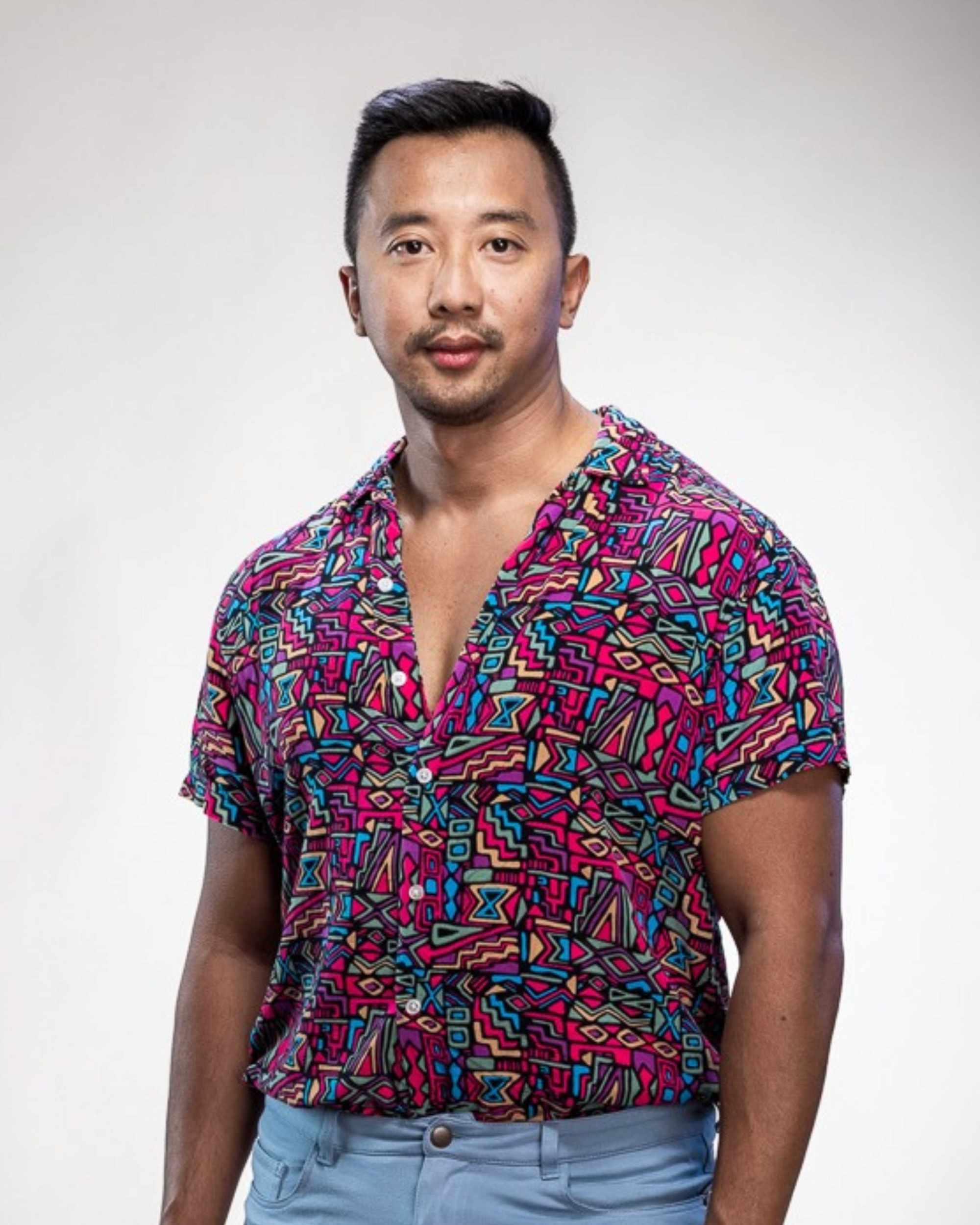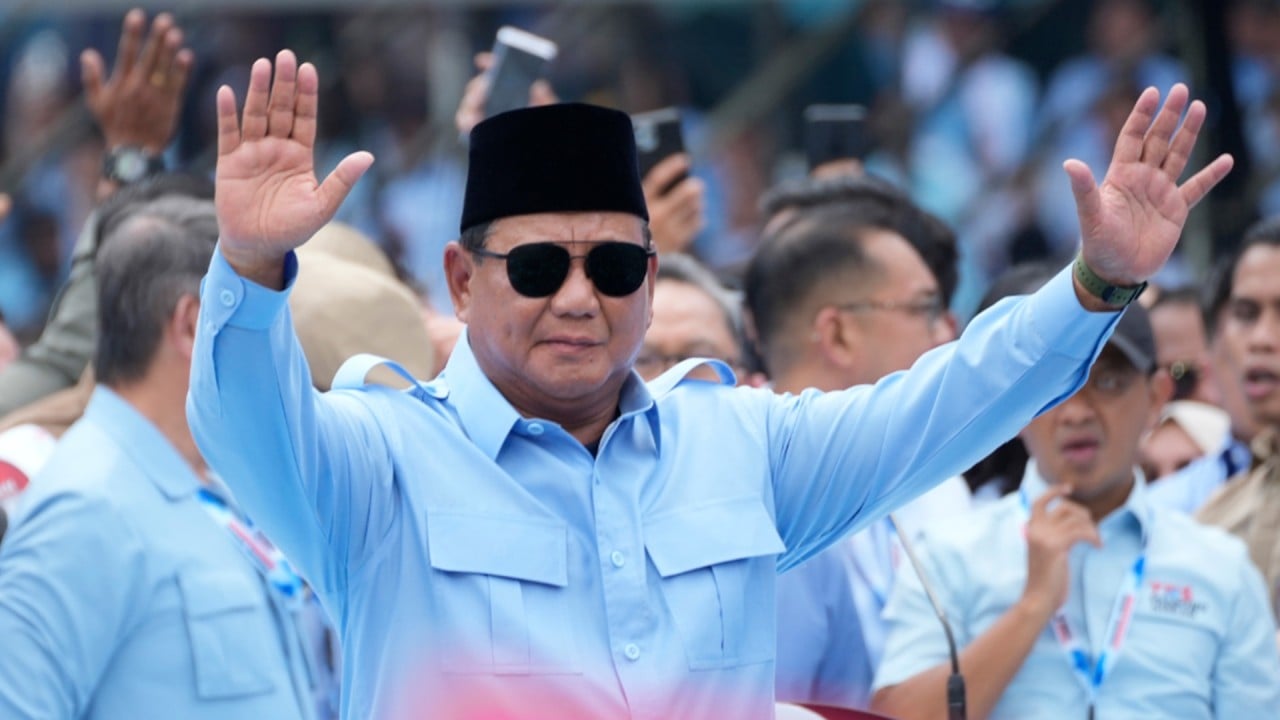“One of our star guests this year is Kai Mata.”

Bali-based singer Kai Mata, who identifies as both queer and lesbian, said she was excited and honoured to have been invited to perform at the parade.
“It’s my first Mardi Gras experience and I can’t wait.”
Ozak said Kai deserved to be celebrated for all she had done to further LGBTQ awareness back home in Indonesia.
“Our float theme this year is ‘Be Brave’; [Kai] is proof of that. To become an openly lesbian musician and activist in Indonesia at the same time is hard.”
Bandung-born Ozak was a contestant in the 2014 Mr Gay World representing Indonesia and moved to Australia in 2011, where he is now a citizen.
“Coming from a developing country like Indonesia, moving overseas is not as easy as pack-and-go. Let’s say I had to leave everything behind and started my life from zero,” he said.
Ozak relinquished his Indonesian nationality and formerly served in the Royal Australian Navy, but says he still feels attached to his country of birth.
“I am still proud of my identity as an Indonesian because that part is permanent and cannot be erased,” said Ozak, whose new memoir I Am That Unicorn: Memoir of an Indonesian Queer details his journey as an immigrant gay man in Australia.

Sydney-based Selina Clara said she would march as part of the Selamat Datang float for the first time this year.
“I came to terms with my sexuality [as a bisexual] seven years ago and it feels like another milestone in my journey of self-acceptance,” said Selina, who is originally from Menado, South Sulawesi.
But not all in the Indonesian LGBTQ diaspora in Australia will be marching in Mardi Gras this year. Sadhewa Widjaja is one of them.
“I first marched more than 10 years ago and will now let the young ones take my place,” said the 53-year-old native of Surabaya.
He said he could remember his own incredulity at being able to proclaim his sexuality as a gay man so openly in a parade when he first marched.
“It was the opposite of what was possible in Indonesia.”
Indonesian host’s discrimination adds to anxieties of LGBTQ folk ahead of poll
Indonesian host’s discrimination adds to anxieties of LGBTQ folk ahead of poll
Sadhewa first moved to Australia in 2007 to be with his then Australian partner. Now a senior cashier at a department store, he said he was a witness to the watershed moment in LGBTQ rights in Australia when marriage equality was enacted in 2017.
“I’m grateful I get to live my life in a country which acknowledges my rights as part of a sexual minority,” he said, but added that it saddened him to see LGBTQ rights in his native Indonesia “going from bad to worse”.
Ozak echoed the same sentiment.
“There is a version of Indonesia that I knew before I left in 2010. I still remember that even traditional cross-dressing dancers didn’t raise eyebrows,” Ozak said.
According to Kai, the decision to be openly queer in Indonesia has meant experiencing intolerance and stigma first-hand.
“Someone told me I would end up in jail for my queer activism a few years ago. While I hope it wasn’t prophetic, I am down for any eventuality,” she said.

Kai became a public sensation in Jakarta in 2020 when she protested against a proposed bill in parliament which would make conversion therapy mandatory for LGBTQ Indonesians. Her public discography has now reached over 4 million online streams.
“But I received a lot of death threats as a result from homophobes and still do from time to time, especially on social media where cyber mobs target me,” she said.
Despite the venom directed at her, the 25-year-old said she had long made up her mind her activism would be her “sacrifice” to further Indonesia’s journey towards equality for LGBTQ people.
“There is the vitriol, the death threats, but also some unbelievably beautiful moments that nourish the soul.”
Kai then related encounters she had with LGBTQ people, who would tell her after her performances how much her songs had lifted them up or helped them get through difficult times.
“They help fuel my determination to go on fighting and creating,” she said.

Lost tolerance
Kai claimed indigenous cultures which had existed for millennia across the Indonesian archipelago were “far more enlightened” about sexual identity.
“Indonesian traditional cultures weren’t ignorant or primitive people that many sometimes imagine them to be.”
Her fervent wish, she said, is for Indonesians to start looking into their past to rediscover the lost tolerance and acceptance of sexual and gender diversity inherent in the archipelago’s indigenous cultures.
Commenting on Indonesia’s recent presidential and legislative elections, Kai said the current and new leaderships were “far from encouraging”.
Security threats in Muslim-majority Indonesia force LGBTQ event to be moved
Security threats in Muslim-majority Indonesia force LGBTQ event to be moved
Sadhewa said he had voted for Prabowo, adding he knew his choice might surprise and even offend other LGBTQ people.
“But I truly don’t see him being a worse candidate than the other two, who also have flaws of their own. Who doesn’t?”
Sadhewa said he admired Prabowo’s “character development”, having observed the former general for years and witnessed the 72-year-old “mature into a wiser man who showed no grudges against his rivals”.
“I don’t know how LGBTQ rights would fare under Prabowo, but would his political opponents be more sympathetic towards sexual minority groups?”
Selina, 27, said she did not vote this year as she “seriously couldn’t make up my mind who to vote for”.
In the lead-up to the ballot day, she said, she had watched with anguish how women’s issues were given scant attention in the presidential debates.
“No mention was made of LGBTQ rights, either,” she noted.
Kai admitted, as things stand, Indonesian LGBTQs may not have much to celebrate.
“But at Mardi Gras, celebrate we will because celebrating our queerness is our rebellion.”


